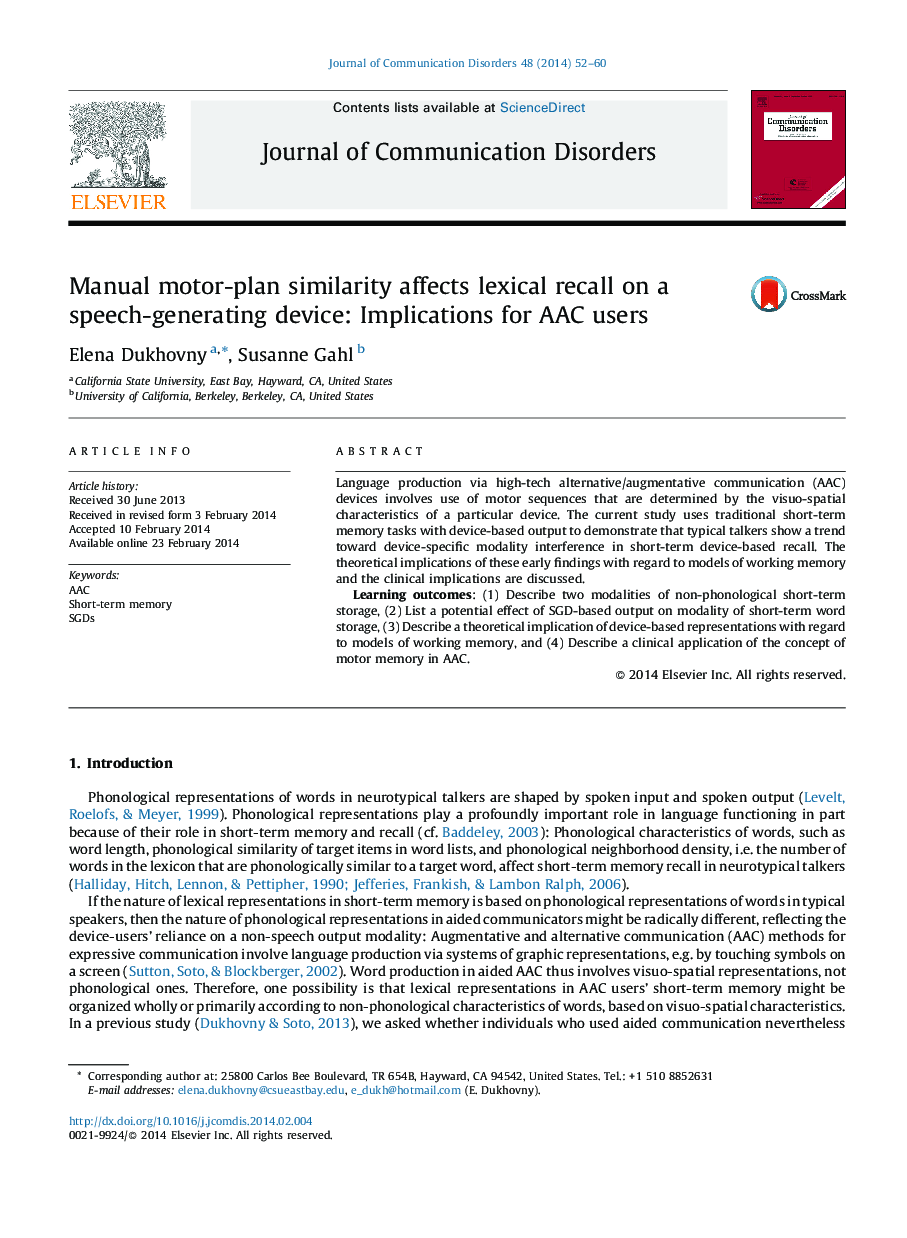| Article ID | Journal | Published Year | Pages | File Type |
|---|---|---|---|---|
| 910820 | Journal of Communication Disorders | 2014 | 9 Pages |
•We describe the effect of speech generating devices (SGDs) on how people remember words.•We compare recall via speech generating devices with recall by speaking.•When using an SGD, people remember words as motor plans, as when typing.•Maximizing use of motor memory may improve SGD design and intervention.
Language production via high-tech alternative/augmentative communication (AAC) devices involves use of motor sequences that are determined by the visuo-spatial characteristics of a particular device. The current study uses traditional short-term memory tasks with device-based output to demonstrate that typical talkers show a trend toward device-specific modality interference in short-term device-based recall. The theoretical implications of these early findings with regard to models of working memory and the clinical implications are discussed.Learning outcomes: (1) Describe two modalities of non-phonological short-term storage, (2) List a potential effect of SGD-based output on modality of short-term word storage, (3) Describe a theoretical implication of device-based representations with regard to models of working memory, and (4) Describe a clinical application of the concept of motor memory in AAC.
